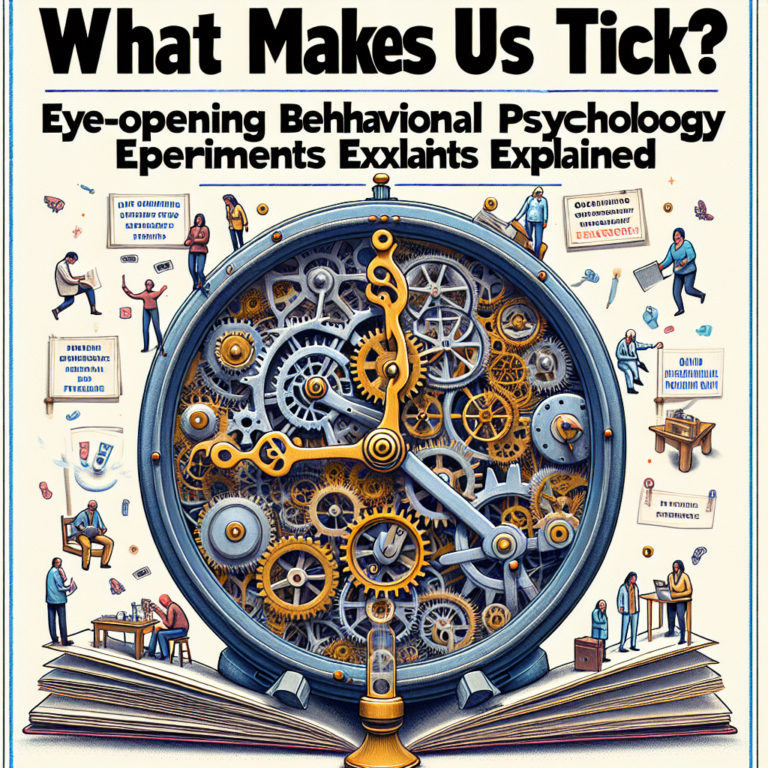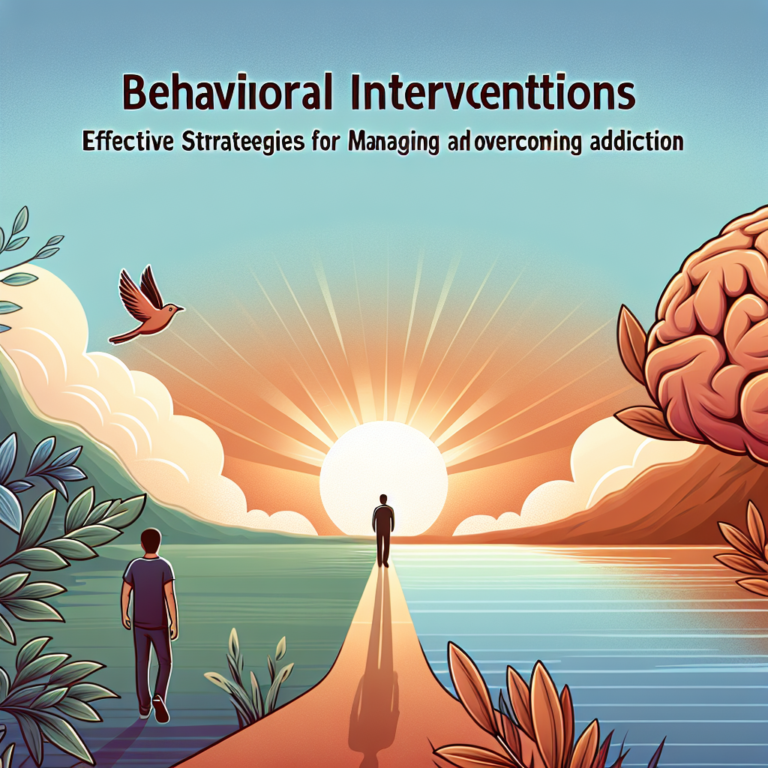
Understanding the Roots: How Behavioral Psychology Shapes Child Development
Introduction: Unraveling the Mystery Behind Child Development
In a world increasingly focused on the nuances of childhood growth, understanding the psychological mechanisms that influence a child’s development is paramount. Enter Understanding the Roots: How Behavioral Psychology Shapes Child Development, an essential exploration of the theories and principles underpinning child behavior and learning. At its core, behavioral psychology posits that behaviors are learned through interaction with the environment, a concept that is crucial for parents, educators, and policymakers alike.
Behavior isn’t merely a product of innate traits; instead, it’s sculpted through experiences, rewards, and social interactions. This article delves into how behavioral psychology informs our understanding of child development, providing practical insights for nurturing healthy, well-rounded children.
The Foundations of Behavioral Psychology and Child Development
What is Behavioral Psychology?
Behavioral psychology, or behaviorism, emerged in the early 20th century, pioneered by figures such as John B. Watson and B.F. Skinner. This discipline emphasizes observable behaviors over internal phenomena like thoughts and emotions. Essentially, behavioral psychology seeks to explain how behaviors are acquired and modified through various forms of conditioning.
The Role of Conditioning in Child Development
Two primary types of conditioning play a pivotal role in child development:
Classical Conditioning: This form involves associating a neutral stimulus with an unconditioned stimulus to elicit a conditioned response. For example, if a child receives praise (unconditioned stimulus) whenever they clean their room (neutral stimulus), they may begin to associate room-cleaning with positive feelings.
- Operant Conditioning: Highlighted significantly in Skinner’s work, operant conditioning focuses on how behaviors can be shaped by reinforcement or punishment. Consider a child who is rewarded with a sticker for completing homework. The sticker serves as positive reinforcement, increasing the likelihood of the child completing homework in the future.
The Influence of Behavioral Interventions
Behavioral interventions have been employed in various educational and therapeutic settings. For example, Applied Behavior Analysis (ABA) is a notable technique used to support children with autism. By systematically reinforcing desirable behaviors and reducing undesirable ones, practitioners can shape children’s behaviors effectively. Understanding the Roots: How Behavioral Psychology Shapes Child Development becomes especially meaningful in this context, as it reveals how targeted behavioral strategies can foster growth and learning.
Key Principles Derived from Behavioral Psychology
Reinforcement: Building Positive Behaviors
Reinforcement lies at the heart of behavioral psychology. By understanding what motivates a child, parents and educators can implement strategies that reinforce positive behaviors. Positive reinforcement, such as verbal praise or tangible rewards, encourages children to continue engaging in desired behaviors.
Case Study 1: The Power of Praise in Early Education
In a head start program in Chicago, teachers implemented a system of praise as a form of positive reinforcement. They observed that by consistently recognizing students for their academic efforts, children began to show a 20% increase in task completion rates. This case illustrates how positive reinforcement can significantly impact child development by fostering an environment of encouragement and growth.
Punishment: A Double-Edged Sword
While reinforcement promotes positive behaviors, punishment serves to deter undesirable ones. However, the use of punishment must be approached with caution. Research suggests that excessive or harsh punishment can lead to negative side effects, such as increased aggression or anxiety. Understanding the Roots: How Behavioral Psychology Shapes Child Development implies a balanced approach—combining reinforcement with constructive feedback instead of punitive measures.
Table: Effects of Reinforcement vs. Punishment
| Type | Impact on Behavior | Potential Consequences |
|---|---|---|
| Positive Reinforcement | Increases likelihood of desired behavior | Enhanced self-esteem, motivation |
| Negative Reinforcement | Increases avoidance of undesirable behavior | Possible increase in anxiety or fear |
| Punishment | Decreases undesirable behavior | Increased aggression, rebelliousness |
Social Learning Theory
Developed by Albert Bandura, social learning theory suggests that children learn by observing others. This theory asserts that role models—parents, teachers, or peers—play a critical part in child development. By witnessing behaviors and the resulting consequences, children are likely to imitate or avoid similar actions.
Case Study 2: The Influence of Role Models
In a 2010 study at Stanford University, researchers found that children who were exposed to positive role models exhibited more altruistic behaviors compared to those who were not. By analyzing interactions among children who watched prosocial behaviors, it became evident that the children were likely to mimic these positive actions. Thus, adopting the lessons from Understanding the Roots: How Behavioral Psychology Shapes Child Development, caregivers should aim to embody the behaviors they wish to cultivate in their children.
Environmental Factors Affecting Child Development
The Home Environment: A Microcosm of Learning
The home environment serves as a child’s first exposure to behavioral principles. Parenting styles vary widely, but the most effective ones combine warmth with structure. This balanced approach allows children to feel secure while also understanding boundaries.
Table: Parenting Styles and Outcomes
| Parenting Style | Characteristics | Typical Child Outcomes |
|---|---|---|
| Authoritative | Warmth + Structure | High self-esteem, good social skills |
| Authoritarian | Harsh Discipline + Low Warmth | Obedient but less happy, lower self-esteem |
| Permissive | High Warmth + Low Structure | Poor self-regulation, impulsive behavior |
| Neglectful | Low Warmth + Low Structure | Various behavioral issues and insecurity |
The Role of Education and Schooling
Schools are microcosms of society where children learn not just academic skills but social behavior. The integration of behavioral psychology within educational frameworks can lead to improved academic performance and behavioral regulation in students.
Case Study 3: Behavioral Strategies in Schools
In a study conducted among elementary schools in New York, the implementation of a behavioral reward system resulted in a significant 30% decrease in behavioral issues. Teachers utilized a point system where students earned points for good behavior, which they could later exchange for privileges. This approach exemplified Understanding the Roots: How Behavioral Psychology Shapes Child Development, demonstrating the practical application of behavioral principles in real-world educational settings.
The Impact of Technology on Child Behavior
As children’s access to technology increases, understanding its impact on behavior is crucial. Digital platforms can be both beneficial and detrimental to child development.
The Interactive Nature of Digital Learning
Interactive platforms enhance engagement and motivation through immediate feedback—a principle rooted in behavioral psychology. Games and educational apps often use rewards to encourage learning.
Table: Pros and Cons of Technology in Child Development
| Aspect | Pros | Cons |
|---|---|---|
| Engagement | Enhanced motivation and interactivity | Potential for addiction and over-reliance |
| Accessibility | Resources available at fingertips | May reduce face-to-face interactions |
| Immediate Feedback | Instant rewards for correct answers | Risk of low frustration tolerance |
Recognizing and Addressing Challenging Behaviors
The Importance of Early Intervention
Identifying challenging behaviors at an early stage is essential for effective intervention. Behavioral principles can inform strategies for understanding and addressing these issues.
Case Study 4: Early Intervention for ADHD
In a longitudinal study of children diagnosed with ADHD, researchers found that implementing behavioral therapy within the first year of diagnosis led to significant improvements in behavioral regulation and academic achievement. This reinforces the idea presented in Understanding the Roots: How Behavioral Psychology Shapes Child Development that early interventions can dramatically alter a child’s developmental trajectory.
Strategies for Managing Behavioral Problems
When faced with challenging behaviors, caregivers and educators can employ various strategies:
- Consistency: Maintaining a consistent approach to discipline reinforces clear expectations for children.
- Modeling Behavior: By demonstrating the expected behaviors, adults provide a framework for children to imitate.
- Creating Structured Environments: Clear routines and structured environments help children know what to expect, reducing anxiety and behavioral issues.
The Power of Community and Social Support
Engaging Families and Communities
The broader community plays a pivotal role in child development. Schools, neighborhood centers, and family networks contribute to the nurturing environment necessary for healthy growth.
Case Study 5: Community Programs and Child Success
An evaluation of community-based afterschool programs in Los Angeles showed that children enrolled in structured afterschool activities experienced improved academic performance and social skills. This aligns with the tenets of Understanding the Roots: How Behavioral Psychology Shapes Child Development, emphasizing the importance of community engagement in the developmental process.
Fostering Supportive Networks
Creating a support network for children and parents alike can mitigate stressors that affect behavior and development. Peer support, mentoring programs, and parenting workshops serve as valuable resources for fostering a harmonious environment.
Conclusion: The Journey Ahead in Understanding Child Development
In exploring Understanding the Roots: How Behavioral Psychology Shapes Child Development, we uncover the profound impact that behaviorism can have on child growth and learning. Armed with knowledge about reinforcement, punishment, social learning, and environmental influences, parents and educators can apply these insights to foster healthier developmental pathways.
As we continue to embrace evidence-based approaches in parenting and education, we can create nurturing environments that promote resilience, motivation, and a lifelong love for learning in our children. Every child is unique, and the right blend of behavioral strategies can make a world of difference in their journey through development.
FAQs About Behavioral Psychology and Child Development
1. What is the main idea behind behavioral psychology?
Behavioral psychology focuses on observable behaviors and the ways they are learned through interactions with the environment, emphasizing conditioning, reinforcement, and punishment.
2. How can positive reinforcement be applied in parenting?
Positive reinforcement involves rewarding desired behaviors to encourage their repetition. For example, praise, privileges, or tangible rewards can reinforce good behavior in children.
3. Are there negative effects associated with punishment?
Yes, excessive or harsh punishment can lead to fear, anxiety, and aggressive behaviors in children, which is why a balanced approach that emphasizes reinforcement is often more effective.
4. How does social learning theory impact child behavior?
Children learn behaviors by observing and imitating role models in their lives. Positive behaviors exhibited by adults or peers can encourage children to replicate those actions.
5. Can behavioral strategies be effective for children with special needs?
Absolutely. Behavioral interventions, such as Applied Behavior Analysis (ABA), have shown significant success in supporting children with special needs by reinforcing desired behaviors and teaching new skills.
By understanding and embracing the principles of behavioral psychology, we can significantly enhance child development and support the future generation in thriving both socially and academically.















